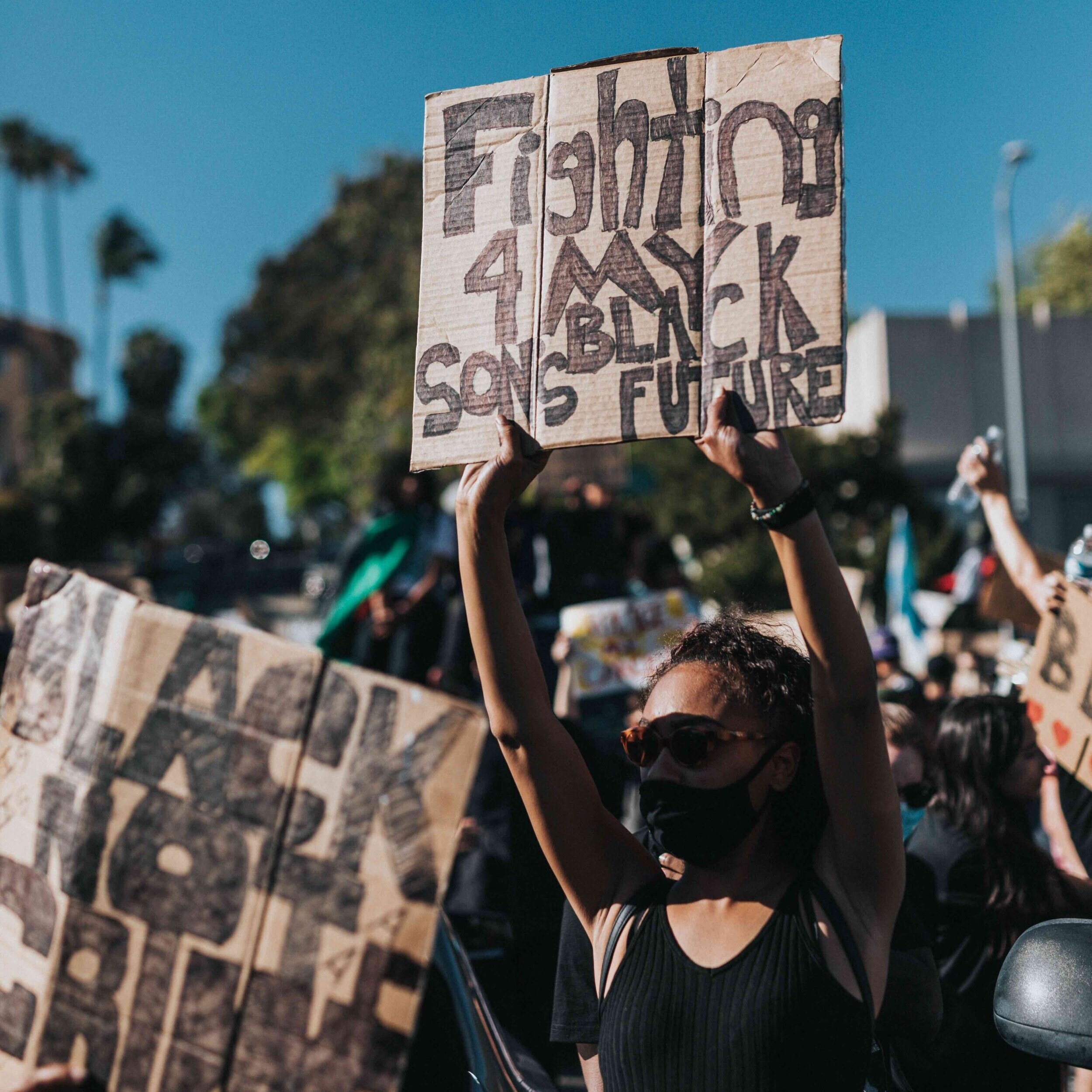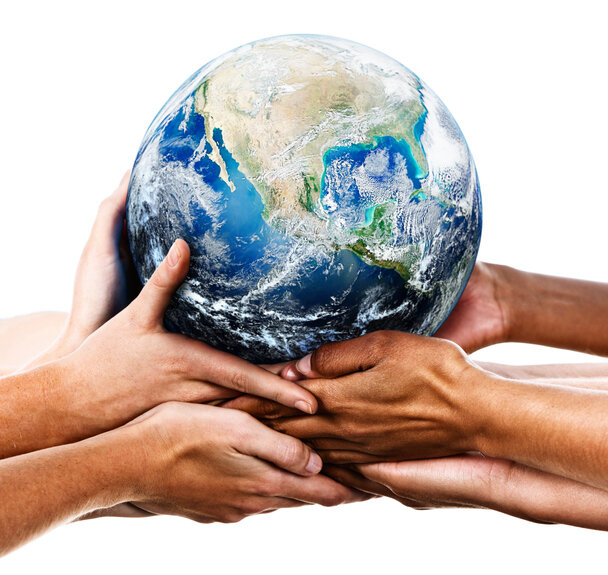How Black, Indigenous, and People of Color Feel the Wrath of Climate Change the Most
Recently there have been a lot of great news articles released about how climate change affects BIPOC. But why are these communities feeling the side effects of climate change more than white people? Here is a quick guide to environmental racism and what we can do to stop it from escalating even more.
You are probably aware of the causes of climate change - unbearable heat waves, extreme winters, deadly hurricanes, and that’s right… COVID-19 (you can find my article about biodiversity that explains this more on my website if you are shocked by this statement).
All these causes affect the quality of the air we breathe, the water you drink, and the food you eat.
Indigenous and Climate Change
Indigenous people are the first to feel the wrath of climate change due to their close relationship to the land. Our Government doesn’t withhold treaty agreements and the people suffer from poor healthcare and a major lack in funding to the IHS (Indian Health Service).
When I was working in Santa Fe, I met a woman who was born and raised on a Navajo Tribe and she brought to my attention how every woman in her region had to get a hysterectomy by the age of 45. When I asked why she kindly talked to me about how climate change has led to the lack of clean water, resources for food, and extreme heat. She also spoke to me about the corruption of the government and how it was impossible to even get government officials to listen to the indigenous concerns. The Breast Cancer Prevention Partners states that hotter temperatures make it harder for our bodies to cleanse and break down and get rid of toxic chemicals. And we have ALL felt these oddly warm winters and crazy hot summers.
Relation of BIPOC and Poverty
One in eight Americans are black, but black Americans make up more than one-fourth of the nation’s poor population. This is because they experience inequalities in education, at the workplace, high incarceration. This has been a battle for way too long and it is just now starting to come to light.
USA Today stated that “A large share of Latino workers also face racial discrimination that can reduce the likelihood of gaining employment and ultimately lead to lower earnings. According to a poll conducted by National Public Radio, the Robert Wood Johnson Foundation, and Harvard T.H. Chan School of Public Health, one in three Hispanics and Latinos living in America report being discriminated against when applying for jobs.”
A 2018 American Poverty Statistics states that of the 11.8% of people living in poverty:
20.8% are Black
17.6% are Hispanic
23.7% are Native American
And only 8.1% are White....
How is low income and poverty related to climate change?
A low income person is more likely to live near toxic power and waste plants. This affects the air that is breathed and the water that is drunk. They are also more likely to leave near the coast of other weathering zones that suffer from extreme hurricanes, harsh winters, and drought.
They have fewer ways to access outdoor nature spaces which depletes a relationship to the land.
They have very few options for food, and the options you do have are low quality. Grantham Centre for Sustainable Research states that extreme agriculture has caused a 33% loss of arable soil. This is because of the shit cattle grazing and toxic pesticides. Which means that the people trying to raise organic, nutritious fruits, vegetables, grains, and meat are having a very difficult time. So the organic food farmers must have a higher price tag on their higher quality food. Which means this higher price tag is not available to low income communities. Which then means the grocery stores in the low income areas aren’t even supplying good quality food.
Low income people have few resources for health care because of how unaffordable health insurance is. The resources that are available offer very few options and make it very hard to book appointments and see a specialist.
How Can You Help?
Get Educated
Learn about your privileges - this has really hit me hard the last few weeks. The more you reflect on your privileges and learn how the other side is living, the more you create empathy and compassion for BIPOC. This then leads to the movement of change and eliminating discrimination so that we really can strive for equality.Donate to Foundations
HERE is a list of organizations to donate to that support black lives and communities of color.
Environmental Agencies - places like Sierra Club and Clean Air Task Force are Non-Government Related (NGO)… which is great because our EPA is really going down the drain.
Make Art
If you are an artist of any kind, use your talents to inspire change. You were given such an amazing gift that has the ability to connect to human emotion. It doesn’t matter what your medium is… use it! I will be teaching a course about this in the coming weeks - please send me an email or DM on social media if you are interested in learning more.Zero Waste Living
No matter who you are - start your zero waste journey today! Zero waste directly reduces your carbon footprint which reduces the wrath of climate change. There are so many free ways to become zero waste that actually save you a ton of money and help momma earth! I am so passionate about this that I made a guide for you HERETalk About It
Have conversations about racism and environmentalism with your family, friends, and loved ones. Speak to your boss and board members at the places you work for or support about how they are making changes to support BIPOC and the Environment.Support BIPOC and Environmental Businesses
Support BIPOC owned businesses or at least businesses that have BIPOC in leadership positions - evaluate EVERYTHING you purchase and start consuming products that are environmentally friendly and owned by BIPOC. A wonderful starting place for changes are grocery stores, coffee shops, plant shops, health and wellness products, and clothing brands. Here are some resources!Grocery Stores and Farmers Makers
Wellness and Lifestyle
Plants Shops
Clothing and Lifestyle
Here is an article written by Sophia Conti for Website Planet that has an array of Black-owned businesses that you can support on and offline.
VOTE
Get to know your BIPOC and Environmental Candidates. I can not articulate this enough. Vote, vote, vote!
You may be thinking that you are one person… does it really matter what you do. ABSOLUTELY! You are unique, creative, inspiring, compassionate person that has the ability to stop environmental racism.
Resources:
https://www.mercycorps.org/blog/climate-change-poverty
https://www.momscleanairforce.org/resources/climate-change-in-the-african-american-community/
https://www.naacp.org/issues/environmental-justice/
http://grantham.sheffield.ac.uk/soil-loss-an-unfolding-global-disaster/
https://www.greenamerica.org/climate-justice-all/people-color-are-front-lines-climate-crisis
https://minorityrights.org/wp-content/uploads/old-site-downloads/download-524-The-Impact-of-Climate-Change-on-Minorities-and-Indigenous-Peoples.pdf
https://www.aljazeera.com/news/2020/05/navajo-nation-hit-hard-coronavirus-200526171504037.html
https://e360.yale.edu/features/how-native-tribes-are-taking-the-lead-on-planning-for-climate-change
https://www.fs.fed.us/pnw/pubs/pnw_gtr944.pdf
https://www.nec.navajo-nsn.gov/portals/0/reports/navajo%20cancer%20rpt%20062610.pdf
https://www.bcpp.org/top-4-ways-climate-change-may-increase-your-breast-cancer-risk/
https://www.usatoday.com/story/money/economy/2018/10/10/faces-poverty-social-racial-factors/37977173/
https://talkpoverty.org/basics/












